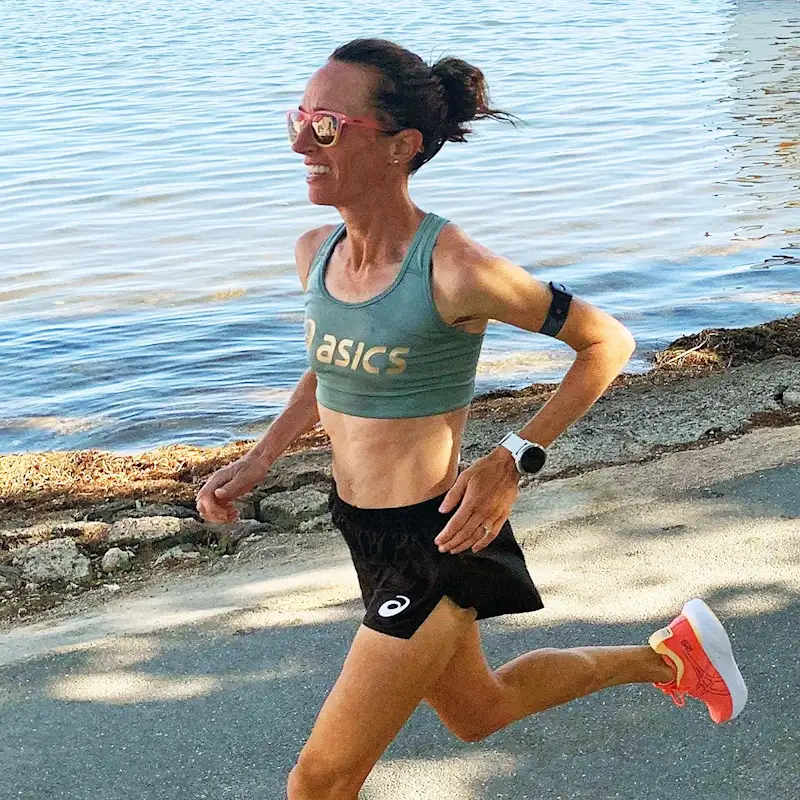
Lisa Weightman
Sunshine Coast Half Marathon
Lisa's headline numbers
Lisa's strategy
Fueling
Carbohydrate is the main fuel you burn when racing. Failing to fuel properly is a leading cause of underperformance in longer races.
Lisa felt well-fueled going into this race, although her stomach was a little unsettled after having to eat breakfast so early for the 6am race start. Given the ‘short duration’ of a half marathon compared to Lisa’s usual marathon racing and other long endurance events in our Case Study Database she should focus more greatly on her pre-race intake. Lisa did exactly this, which allowed her intake during the half marathon to be low, as she took in just ~38 grams of carb. This was plenty to satisfy her desire for something during the race and top up her blood glucose levels, even though she likely had enough stored glycogen to sustain her effort across the 70 minutes.
Hydration
Taking on board an appropriate amount of fluid and sodium is essential to maintaining blood volume and supporting the cardiovascular effort needed to perform on race day.
Whilst the absolute amount of sodium and fluid consumed per hour is important, it’s critical to consider these in relation to each other. This is known as 'relative sodium concentration' and it’s expressed in milligrams per litre (mg/L). How much sodium you’re taking in per litre of fluid is more important than the absolute amount taken in per hour.
Sweat sodium concentration (mg/L) is largely genetically determined and remains relatively stable. Knowing how salty your sweat is enables you to replace a good proportion of your sweat losses, which can range from 200-2,000mg/L.
Whilst Lisa’s losses are on the low side, getting her hydration strategy right is still important if she wants to perform at her best.
Learn moreSimilar to her fueling plan, Lisa’s hydration strategy focused on starting the race as hydrated as possible, then taking a few sips throughout the race when needed. Although she didn’t take on any sodium during the race, this is unlikely to cause performance-limiting effects over such a short race duration, especially given her low sweat sodium concentration and the fact she went into the race well hydrated.
Caffeine
Beyond the Three Levers of Performance (carb, sodium and fluid), caffeine is one of only a few substances that is proven to improve performance for most endurance athletes as it can help stave off mental and physical fatigue.
Lisa had a coffee with her breakfast at 3am, but chose not to supplement with any additional caffeine right before or during the race. Significant performance enhancement has been observed for races over ~1 hour when taking between 3-6 mg/kg of caffeine beforehand. Considering her race time was just over this hour mark, she could add a couple of PF 30 Caffeine Gels or some caffeine tablets into her strategy for races in the future to reap the ergogenic benefits.
How Lisa hit her numbers
Here's everything that Lisa ate and drank on the day...
Lisa's weapons of choice
Final thoughts
Lisa's full stats
Data Confidence?
There is good confidence in the accuracy of the data reported. An athlete feels that the numbers closely reflect what they consumed despite a couple of estimations which may carry some degree of error. The majority of what was consumed is recorded to a high level of specificity (most volumes are known through the use of bottles brands quantities flavours). The numbers are very plausible and align with previous data recordings (if an athlete has collected data previously).